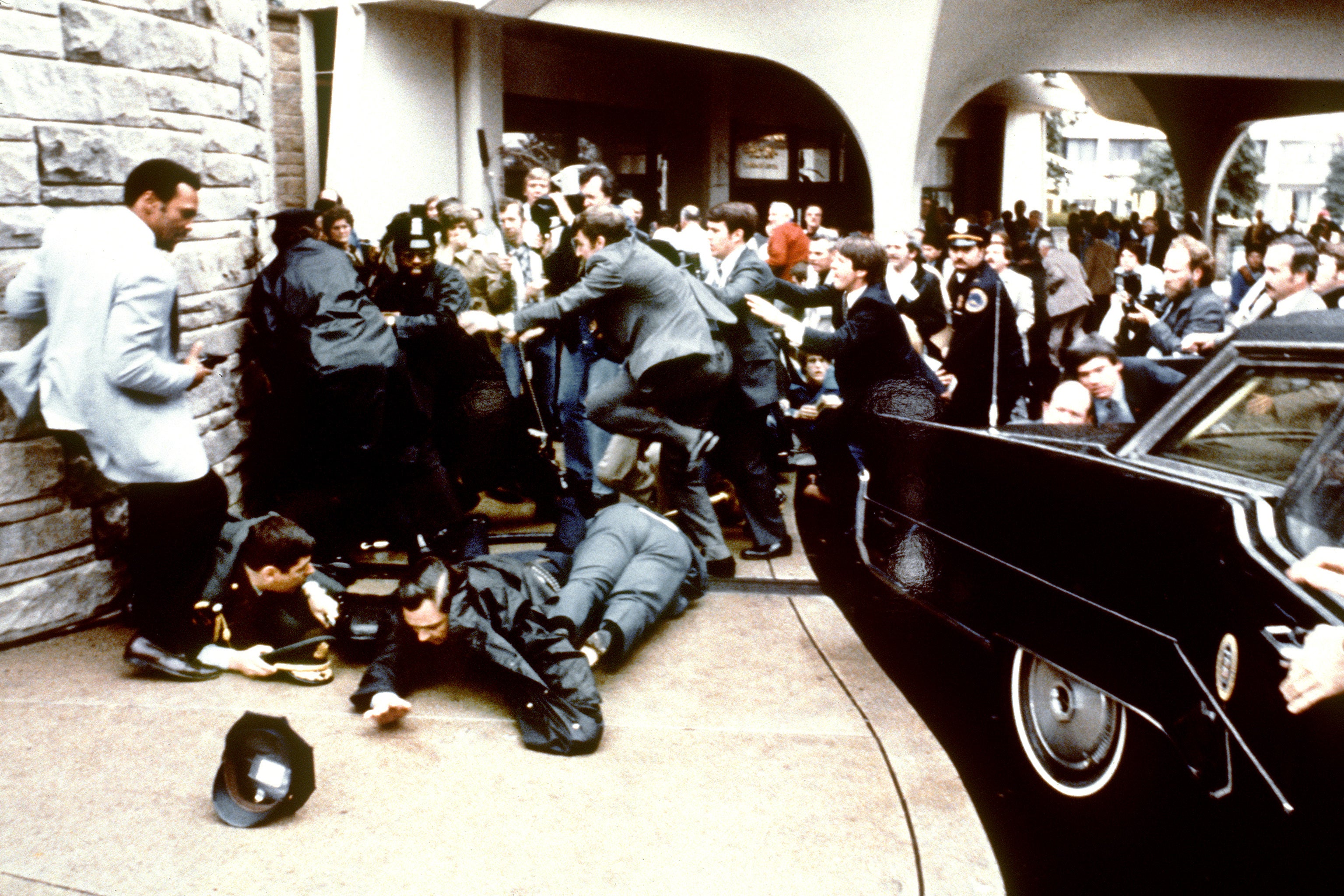John Hinckley: Lawyers reach deal for attempted Reagan assassin’s ‘unconditional release’
Then-president Ronald Reagan was shot and wounded in 1981
Your support helps us to tell the story
From reproductive rights to climate change to Big Tech, The Independent is on the ground when the story is developing. Whether it's investigating the financials of Elon Musk's pro-Trump PAC or producing our latest documentary, 'The A Word', which shines a light on the American women fighting for reproductive rights, we know how important it is to parse out the facts from the messaging.
At such a critical moment in US history, we need reporters on the ground. Your donation allows us to keep sending journalists to speak to both sides of the story.
The Independent is trusted by Americans across the entire political spectrum. And unlike many other quality news outlets, we choose not to lock Americans out of our reporting and analysis with paywalls. We believe quality journalism should be available to everyone, paid for by those who can afford it.
Your support makes all the difference.Attorneys have reached a deal for the “unconditional release” from supervision of John Hinckley Jr, the man who attempted to assassinate President Ronald Reagan in 1981.
US District Court Judge Paul Friedman said on Monday that he will approve the deal, which stipulates that Hinckley will be released next year. Until now, the would-be assassin has been living under supervision outside a mental health facility in Williamsburg, Virginia.
Prosecutors have agreed to the 2022 release, under the condition that Hinckley be monitored for the next nine months.
A lawyer for Hinckley said his client no longer poses a threat.
“There is no evidence of danger whatsoever,” attorney Barry Levine told the court.
Hinckley, now 66, was 25 when he shot Mr Reagan outside a hotel in Washington, DC. He also wounded a Secret Service agent, a police officer, and White House press secretary James Brady, who remained blind and paralysed for the rest of his life.
After being treated in hospital, Mr Reagan survived the assassination attempt and went on to spend seven more years as president. His recovery was widely seen as one of the reasons for his huge increase in popularity afterward.

At his trial for the shooting, Hinckley was found not guilty by reason of insanity in 1982. He was then committed to a hospital in Washington, DC, where he stayed until 2016, at which point he was allowed to move in with his mother in Williamsburg. Throughout that time, he has received psychiatric treatment.
On Monday, Judge Friedman said Hinckley ceased to be dangerous many years ago, and could have been released earlier if not for the infamy of his case.
“If he hadn’t tried to kill the president, he would have been unconditionally released a long, long, long time ago,” Judge Friedman said. “But everybody is comfortable now after all of the studies, all of the analysis and all of the interviews and all of the experience with Mr Hinckley.”
Speaking for Hinckley, Mr Barry said his client wished to apologise with “deep regret” to the American public, to his victims’ families, and to Jodie Foster – an actress whom Hinckley had been obsessively stalking at the time of the assassination attempt. In the aftermath of the shooting, Hinckley said he had made the attempt on Mr Reagan’s life as a way of winning Ms Foster’s love.
Mr Barry said he hopes Hinckley’s release will be seen as a “victory for mental health.”
“His future, we think, is bright, and I hope others with a good sense of charity would wish him well,” the attorney said on Monday, according to CNN. “I would hope people would see this as a victory for mental health. People who have been ravaged by mental disease, with good support and access to treatment, can actually become productive members of society.”
When Mr Brady died in 2014, a medical examiner ruled his death a homicide, saying it was the result of the wounds he received in the shooting. However, Hinckley did not face any charges. In 2000, the White House briefing room was renamed the James S Brady Room in his honour.
Subscribe to Independent Premium to bookmark this article
Want to bookmark your favourite articles and stories to read or reference later? Start your Independent Premium subscription today.




